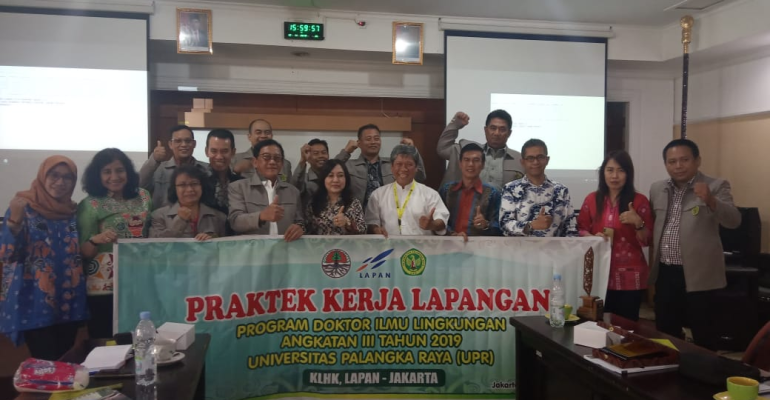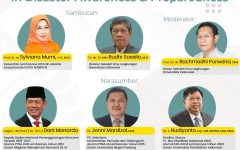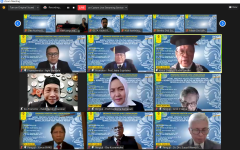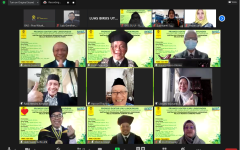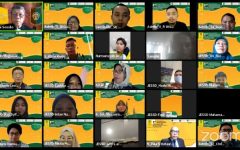Field Visit Palangkaraya University, Central Kalimantan
August 9, 2023 2024-12-21 17:17Field Visit Palangkaraya University, Central Kalimantan
Salemba, Tuesday, November 12, 2019, University of Palangka Raya (UPR) Postgraduate Program visited the School of Environmental Science. The group was received by the Deputy Director of SIL, Dr. dr. Tri E. Budhi Soesilo, Permanent Lecturer of the School of Environmental Sciences Andreas Pramudianto, and Halvina G. Saiya.

On this occasion, the Director of the UPR Postgraduate Program, Prof. Ir. Yetrie Ludang, M.P. brought the Head of the Doctoral Program Study Program, Doctoral Program Students and Environmental Science Postgraduate Program Staff and one of them was a Pharmacist Student.
Starting his speech, Dr. dr. Tri Edhi Budhi Soesilo introduced the SIL academic community and welcomed the field visit from UPR.

The Postgraduate Program of Palangka Raya University was established on September 15, 2018, explained Prof. Yetrie, has 12 study programs Master of Management, Master of Economics, Master of Natural Resources & Environmental Management, Master of Out-of-School Education, Master of Economic Education, Basic Education, Chemistry Education, Biology Education, Social Studies Education, Doctor of Environmental Science.
The Director of PPS UPR explained that the purpose of the visit was to absorb aspirations, references related to student dissertation topics. UPR needs input related to forestry, forestry problems, environmental law aspects and others. Exploration of cooperation is also included in the purpose of the visit.
Responding to questions from UPR regarding academic activities, Dr. Budhi Soesilo explained that SIL UI doctoral graduates do not have to find new theories, but can also reformulate a theory. SIL Research Clusters include Biodiversity, spatial & spatial planning, humanities & social. SIL UI has graduated 152 doctors since April 2005.

The issue of environmental law which became the question of UPR S3 Environmental Science students received a response from Andreas Pramudiato, that the issue of environmental law enforcement from forest fires has now experienced an increase in legal efforts, including the increasing number of demands to the court against forest burning companies and the resulting decisions have a high value. It’s just that the next question is whether it will have a deterrent effect or are these decisions able to be executed?

The role of judges in court decisions in environmental cases is quite significant, especially in court decisions produced in forest fire cases, Andreas continued. It’s just that further execution of the decisions is needed. Meanwhile, regarding the issue of environmental insurance, it cannot be used except in cases of oil pollution, nuclear and ultra hazardous activities. Compensation still uses a general civil court mechanism. This is because the Environmental Court has not yet been established. Though this is quite important to be established.


